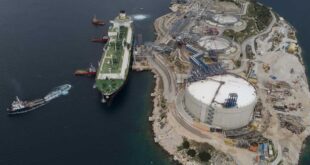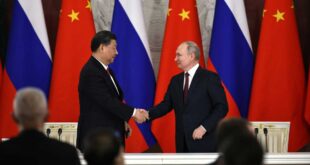Eng. Saleem Al Batayneh
In a world rife with political complexities, it’s essential to dissect prevailing narratives that seek to delegitimize Palestinian identity and question Jordan’s very existence. This reflection endeavors to bring to light the silent, castrated response to Israeli actions, which often includes derisive remarks, mockery, and insults aimed at Jordan, Palestine, and the broader Arab community. It’s time to break the silence and critically examine the acquired fears surrounding the events unfolding around Jordan.
Beyond the surface, a hidden tapestry of machinations is at play, where periodic revelations only unveil a fraction of the concealed plans and actions. Israeli leaders, driven by an unabashed ideology rooted in biblical Zionist thought, envision the future of Palestinians solely within the borders of Jordan. This perspective is not only alarming but demands scrutiny and collective acknowledgment.
Contrary to those who believe that historical plans have dissipated, it becomes evident that Israeli annexation, change, and displacement projects toward Jordan persist with the support and funding of select Arab regimes under American Zionist sponsorship. The success of this plan hinges on annexing the Jordan Valley, depopulating Gaza, and evacuating the West Bank—a scheme meticulously detailed in the secret deal of the century.
A grand plan unfolds, involving the relocation of Palestinians from the West Bank to Jordan, the construction of new cities, and the transfer of populations from the Galilee and southern Lebanon, effectively redrawing the borders of the State of Israel. The displacement extends to residents in the occupied Golan, the Hula Plain, and the Eastern Galilee region, suggesting a comprehensive effort to reshape demographics and geopolitical boundaries.
The historical context of the 1986 US Congress approval of the Bernard Lewis plan to divide the Arab world adds weight to these unfolding events. Quoting figures like Ben-Gurion and Moshe Dayan strengthens the narrative that challenges the very existence of Jordan based on Zionist ideology.
Denying these conspiracies and plans becomes imprudent as they are deeply rooted in Zionist thought and acknowledged by Arab leaders. Israel’s sinister trilogy—the Jewish state, demography, and transfer—manifests in maps issued by Israeli and Western research centers, indicating a concerted effort to rewrite history, manipulate demographics, and ultimately terminate the Palestinian issue.
In the face of these challenges, the international community must remain vigilant and work towards dismantling distorted narratives. The collective silence surrounding these issues only perpetuates a status quo that threatens the very fabric of Palestinian identity and the existence of Jordan. The time has come to question, debate, and strive for a future that upholds justice, peace, and the rights of all stakeholders in the region.
Unveiling the Menace: Hidden Agendas and Threats to Jordan’s Existence
In Jordan, a lack of awareness persists among officials and elites regarding the insidious tactics of archival treachery and the theft of history. Ignorance prevails concerning Israel’s unwavering principles and the ominous prospects that may reshape Jordan accompanied by a redesigned demographic map. Former US Ambassador to Jordan, Henry Wooster, alludes to the possibility of a new or greater Jordan emerging—a facet of American-Israeli arrangements aimed at closing the Palestinian issue while jeopardizing the Hashemite political system.
The meticulously crafted projects like the New and Greater Middle East, new Jordan, New Levant, and the Neo-Conservatives Project are American-made initiatives strategically designed to safeguard Israel’s security and assert dominance over the Arab region.
Around a year ago, Israeli geography expert Shaul Arieli revealed that Israel, through the Jewish National Fund’s substantial real estate acquisitions, is inching towards annexing the West Bank and orchestrating a gradual population displacement towards Jordan.
Israeli Minister of National Security, Itmar Ben-Gavier, dismissively labeled Jordan as a human reservoir for the region’s crises, portraying its relationship with Israel as a non-zero-sum game. He asserted that Jordan, surviving on aid and grants, operates as part of the Israeli strategic national security system.
The gravity of the situation amplifies when Israeli Minister of Finance, Samuel Smotrich, boldly denies the existence of a Palestinian people, branding them as a “fake people.” This sentiment aligns with his presentation of a map envisioning Greater Israel, incorporating Jordan.
Israeli General Yossi Kuper-Weiser, Head of the Research Department in Israeli Military Intelligence, underscores the Arab leaders’ failure to act responsibly and their tendency to betray their people. He warns of their reluctance to embrace change, emphasizing their focus on self-preservation and wealth, alluding to secret collaborations with Israeli leadership.
The disconcerting revelations extend to the Israeli opposition leader, MP Tzipi Livni, who disclosed the complicity of certain Arab leaders in aligning with Israel’s interests. Livni emphasized that Jerusalem and the Palestinian issue were no longer Arab priorities, indicating a subtle shift in regional dynamics.
Recalling historical statements, such as King Abdullah II’s threat and Yitzhak Rabin’s vision to reduce Arabs to “lumberjacks and servants,” and Yitzhak Shamir’s notion that future generations might demand altered borders, underscores the persistence of such ominous ideologies.
In a lecture, David Passage, a university professor in Israel, notes the Arab rulers’ fear-driven response to the Arab Spring, causing them to prioritize appeasing the White House over divine concerns. The Arab rulers’ conduct, governed by fear, self-preservation, and power retention, paints a grim picture of political inertia.
A chilling article published in The Times by Israeli journalist Ben Henakht unveils an alarming aspiration to gain control over Aqaba and its Gulf, with explicit threats to attack the Hijaz and destroy the holy sites in Mecca and Medina once Jews have complete dominion.
As we navigate the uncertain days ahead, it becomes imperative to scrutinize hidden agendas and unveil the concealed threats. The unfolding scenarios demand careful analysis, for what transpires in the region holds the potential to reshape geopolitics with lasting consequences. The shadows of the unknown loom large, urging vigilance and a collective effort to discern the true intentions that may shape the future of Jordan and the wider Middle East.
Bridging the Gap: Overcoming Deficiencies in Geopolitical Studies
It is glaringly evident that our geopolitical studies are falling short in anticipating the future, particularly the more distant future. The persistent question remains: Are Jordanian assessments founded on a meticulous analysis of the components shaping the impending political landscape post-Gaza? This, in my perspective, unfurls a myriad of questions that delve into the profound depths of our political and security capabilities.
Israel stands as a stark reflection of reality today, demanding a keen comprehension of the unfolding scene. All compelling evidence underscores that Jordan finds itself within the crosshairs of direct Israeli targeting, be it through the looming risks of displacement or the metamorphosis of ideological myths into voracious political projects that threaten to engulf Jordan.
The Arab populace is often swayed by emotions and impassioned reactions, which, however, tend to subside rapidly once the initial shock wears off.
The imminent future promises a cascade of events and transformations, leaving a lingering concern that the ongoing developments may constrain Jordan within externally delineated political boundaries, impeding its ability to transcend them. The urgency lies in grasping the reality of the situation and fortifying our political and security capacities to navigate the complexities that lie ahead.
Al Batayneh was a Member of the Jordanian Parliament
 Geostrategic Media Political Commentary, Analysis, Security, Defense
Geostrategic Media Political Commentary, Analysis, Security, Defense





